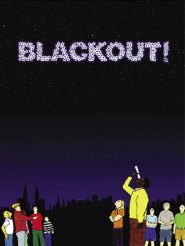Cave of Forgotten Dreams is probably not an essential Werner Herzog film, and I sympathize with those (like Bill Benzon) who’d much rather just see the pictures and do without Herzog’s prattling on or the “banshee muzak,” as Bill calls it. In both the prattling and especially the banshee muzak (which is pretty good, for banshees, and for muzak) it’s very much of a piece with Herzog’s sci-fi-ish and underwater scenes like those in Wild Blue Yonder and Encounters at the End of the World. In its stylized interviews with quirky scientists it’s also consistent with Encounters, though perhaps more sober.
The Chronicle of Higher Ed has a good article by Tom Lutz on the state of declining education in this country.
While the University of California system is being hit particularly hard, the trends are the same at public institutions everywhere, including here at the University of Vermont (class sizes increasing, faculty positions not being replaced, positions being cut, etc.).
Lutz writes:
Posted in Academe | Tagged Academe, higher ed | Leave a Comment »
… over at Knowledge Ecology.
My quick impression from chapter 1 is mixed: a promising start, followed by a sour turn and then something of a rebound.
Posted in Uncategorized | Tagged Integral Ecology, integral theory | 2 Comments »
The Integral Ecology reading group schedule has been announced, with Michael at Archive Fire leading the charge (with the announcement; Adam at Knowledge Ecology with the actual hosting).
The schedule is as follows:
Posted in Eco-culture, Philosophy | Tagged Integral Ecology, integral theory | 7 Comments »
http://youtu.be/RuzP4-N-9DM
Hat tip to Cheryl at World of Music, who shares her own slide show here.
And this is child’s play compared to the tornadoes and flooding in this country’s midwest.
Posted in Uncategorized | Tagged Vermont | 3 Comments »
With that three-part series uploaded, I’ll be taking a break from posting extended articles here (as I’ve threatened to do once or twice already!) — with the exception of my contributions to the coming Integral Ecology reading group series, which will begin within a week and continue through June and July. The schedule and list of participating blogs for that series will be published soon.
Immanence will generally be less active over the summer months, but if anyone is interested in submitting a guest contribution — especially in a poetic or artistic vein — please send your ideas (or posts) to me at aivakhiv@comcast.net. Since the “GeoPhilosophy” category of posts has overshot all others by far (up to 160, compared to 92 for “EcoCulture,” 81 for “Politics,” 69 and 68 respectively for “MediaSpace” and “SpiritMatter,” and less for others), I’d like to try to gradually rebalance the equation.
Posted in Blog stuff | Leave a Comment »
This is the concluding part of a three-part article. Part 1 can be found here, Part 2 here. They should be read in the sequence in which they were published.
The True, the Good, and the Beautiful
All of this can be related to the triad of the True, the Good, and the Beautiful — or, in their Peircian sequence, aesthetics, ethics, and logic. Aesthetics, as Peirce conceived it, is most directly concerned with firstness; ethics, with secondness; and logic, with thirdness.
Posted in Philosophy, Spirit matter | Tagged aesthetics, Buddhism, ecology, emergence, ethics, flow, logic, Peirce, Shinzen Young, Whitehead, Wilber | 1 Comment »
This continues from the previous post, where Shinzen Young’s model of core mindfulness practices was expanded into a system of classifying what a human bodymind can do. Here the model is deepened following the process-relational insights that are at the core of Shinzen’s system as well as of other (especially Mahayana and Vajrayana) Buddhist systems, and of the philosophies of A. N. Whitehead and, in some respects, of C. S. Peirce, Gilles Deleuze, and other process-relational thinkers. This part is followed by a concluding segment, found here.
Posted in Philosophy, Process-relational thought, Spirit matter | Tagged Buddhism, meditation, mindfulness, Peirce, practice, Shinzen Young, Whitehead | 1 Comment »
Working with Shinzen Young‘s system of mindfulness training, which I’ve described here before, and thinking it through in the process-relational logic I’ve been developing on this blog (and elsewhere), is resulting in a certain re-mix of Shinzen’s ideas, and of Buddhism more generally, with Peirce’s, Whitehead’s, Wilber’s, Deleuze’s, and others’. Here’s a crack at where it’s taking me…
I’ve divided this into three parts due to its length. Part 1 builds on Shinzen’s “5 ways to know yourself as a spiritual being,” which presents five core mindfulness practices, to develop a basic classification of ways in which the human bodymind can know itself and the world. Part 2 deepens the model by pushing beyond traditional dualisms through incorporating what Shinzen calls “flow,” which is analogous to the central insight of process-relational philosophies about the fundamentally processual nature of subjectivity or mentality, objectivity or materiality, and the dynamic and interdependent relationship between the two. Part 3 provides some concluding thoughts and caveats.
Posted in Philosophy, Process-relational thought, Spirit matter | Tagged Buddhism, meditation, mindfulness, Peirce, practice, Shinzen Young, Whitehead | 5 Comments »
… by the record water levels in Lake Champlain following this winter’s snows and this spring’s seemingly endless (and sometimes torrential) rains.
There is usually about 40 feet of beach at the spot pictured above, just down the hill from us, all of it now under water. Average water levels in the lake are around 95 feet above sea level. Flood stage is 100 feet. This year they hit 103.3 ft here in Burlington.
Posted in Visual culture | Leave a Comment »
An in-law sent me a PDF of this rudely hilarious little picture book that would warm the cruel heart (or maybe cruel the warm heart) of every new parent. Turns out the artist, Ricardo Cortes, does great little books like Sketches of the Drug Wars and the celebration of power blackouts pictured above (both links here are PDFs).
Posted in Politics, Visual culture | Leave a Comment »
Graham Harman’s note reiterating his position that Whitehead, Latour, Deleuze, Bergson, and Simondon (among others) do not make up a coherent philosophical “lump” — “pack” or “tribe” might be more colorful terms here (if philosophers were cats, how herdable would they be?) — makes me want to clarify my own position on these thinkers.
Posted in Philosophy, Process-relational thought | Tagged Continental philosophy, Deleuze, Harman, Latour, Stengers, Whitehead | 5 Comments »






